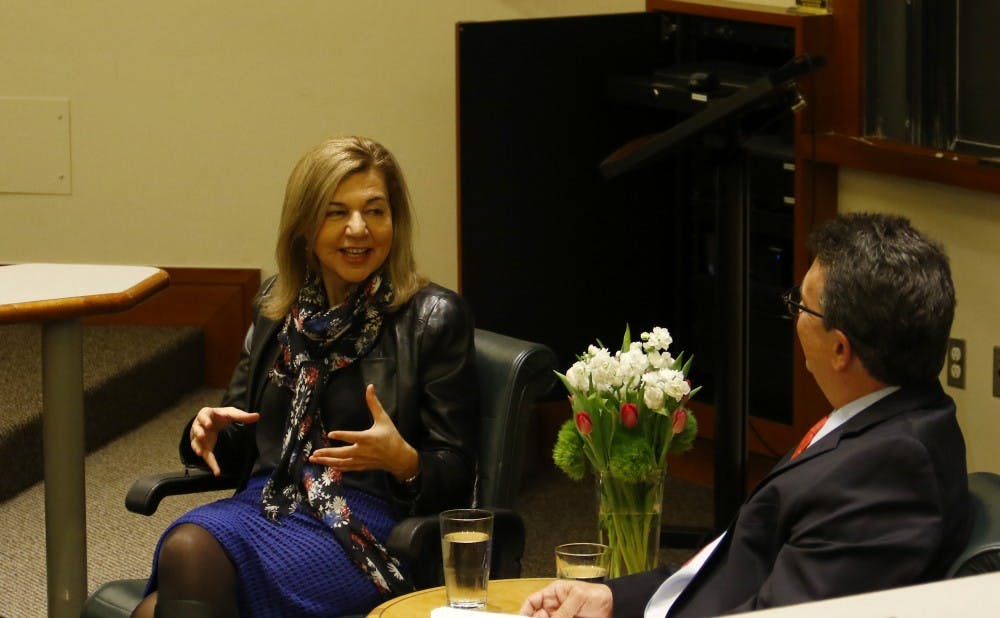Margaret Sullivan—public editor for The New York Times—spoke about ethics in journalism and change in the media industry at the Sanford School of Public Policy Wednesday.
In the annual Ewing Lecture on Ethics in Journalism hosted by the DeWitt Wallace Center for Media and Democracy, Sullivan discussed her experiences working for the major news organization, journalism ethics and the media in today’s digital age. As the public editor, Sullivan is responsible for identifying critical errors in the paper and acting as a liaison to the public.
“Journalists are competitive, and that’s a good thing," Sullivan said. "As an editor, I loved reporters who are very eager. But it has to be tempered by an editor who will say, ‘Whoa let’s make sure this is right.’”
She explained the importance of confirming a story’s sources before printing an article and talked about the usefulness and limitations of anonymous sources.
Sullivan also noted the changes she has observed at The New York Times as the organization adjusts to the popularity of digital products.
“It doesn’t feel like a newspaper anymore. It feels like a digital media organization,” she said. “There’s been incredible progress made.”
As the demand for digital content increases, The New York Times is hiring people with different sets of skills who do not have the traditional journalism backgrounds of past writers, she explained.
“I think the people who are the most digitally savvy tend to be relatively new in the business,” she said.
Sullivan discussed the balance that the media must strike between covering what viewers need to know and what they want to know. She noted that sometimes public interest stories can feel like “broccoli,” whereas lighter, human interest articles seem like “dessert." She said she believes there can be a balance between these two extremes.
A tension between reporting on the wealthy and the underprivileged also exists, she explained. The media’s desire to increase its readership further complicates this issue.
“When there’s so much in the paper about the latest high-rise and exclusive condo, is the core mission [of journalism] still being carried out?” she said.
In addition, she talked about how quickly the media is changing.
“I think that we are in the middle of a digital revolution, and if anyone tells you what things are going to look like in five years, they just can’t,” she said.
Sullivan will step down from her position at the New York Times, which she assumed in 2012, in August to join The Washington Post as its media columnist. She noted that she feels the position of public editor has a “shelf life” because it is easy to become too familiar with the organization.
“It's getting to be hard to feel like an outsider, and I really feel like you need to have an outsider’s perspective,” she said. “When you work at same place for three years, it gets harder to have this sense of critical distance.”
Get The Chronicle straight to your inbox
Signup for our weekly newsletter. Cancel at any time.

